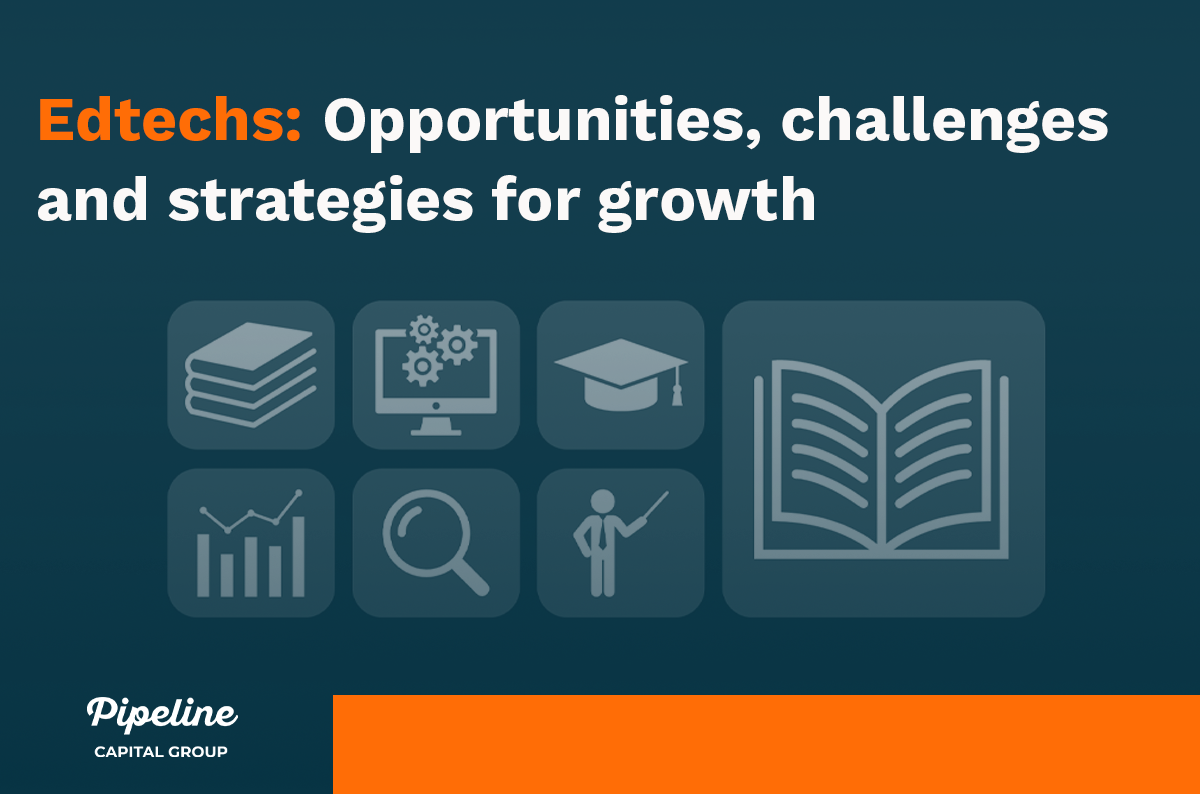The Edtech sector has been experiencing rapid growth, driven by new educational demands, technological advancements, and an increasingly receptive market for digital innovation. For experienced entrepreneurs, the challenge is no longer understanding the concept of Edtechs but rather how to navigate a competitive landscape, scale operations, and ensure sustainable differentiation.
In this article, we explore the critical success factors for mature Edtechs, analyze specific industry challenges, and discuss strategies for consolidating market presence and attracting investments.
Opportunities in the Edtech Market
The rise of educational technologies has created a wide range of opportunities for companies in the sector. Some of the key trends and opportunities include:
1. Personalized Learning
Artificial intelligence and adaptive learning enable Edtechs to offer personalized content, adjusting teaching methods to individual student needs. Startups developing scalable solutions in this niche gain a competitive advantage.
2. Expansion into Corporate and B2B Markets
Beyond academia, there is a growing demand for educational solutions in the corporate environment. Customized training, skill development platforms, and continuous learning are highly valued by companies looking to retain and develop talent.
3. Integration with Immersive Technology (VR and AR)
Virtual and augmented reality are transforming education, particularly in technical and medical fields. Edtechs incorporating these technologies enhance engagement, retention, and user experience.
4. Gamification and Engagement
Using game mechanics to increase student motivation has proven highly effective. Reward-based models and progress tracking improve course completion rates and enhance user loyalty.
5. International Expansion and Localization
With SaaS-based scalability, Edtechs can expand globally, adapting their solutions to different languages and cultural contexts.
Challenges and Barriers in the Edtech Industry
Despite these opportunities, Edtechs face structural and strategic challenges that entrepreneurs must carefully address:
1. High Customer Acquisition Cost (CAC)
The competitive landscape has significantly increased customer acquisition costs, especially in B2C models. Efficient retention strategies and maximizing lifetime value (LTV) are essential for financial sustainability.
2. Regulatory Compliance and Credibility
Operating in the education sector requires compliance with specific regulations and building credibility among educational institutions and corporate clients.
3. Monetization and Revenue Models
Entrepreneurs must define solid monetization models, whether through subscriptions, corporate licensing, partnerships, or freemium models. The right business model directly impacts scalability.
4. Integration with Existing Infrastructure
The adoption of new technologies in schools and businesses often encounters challenges integrating with legacy systems. Edtechs that provide plug-and-play solutions gain a strong competitive edge.
5. User Engagement and Retention
Retention is a key success factor. Without effective strategies to keep users engaged, the scalability of an Edtech may be compromised.
Strategies to Scale and Differentiate Your Edtech
To consolidate an Edtech in the market and enhance competitiveness, implementing key strategies is essential:
1. Invest in Hybrid Learning Models
A blend of online and in-person experiences has proven effective in increasing adoption and user acceptance.
2. Form Strategic Partnerships
Mature Edtechs should seek alliances with universities, corporations, and industry organizations to expand their distribution and credibility.
3. Leverage Data-Driven Insights
Collecting and analyzing user behavior data provides a competitive advantage. With data-driven insights, companies can optimize user experience and improve retention rates.
4. Continuous Investment in Technology
Innovative and scalable platforms provide long-term differentiation. Emerging technologies such as AI, blockchain for certification, and machine learning should be explored.
5. Growth Through Mergers and Acquisitions (M&A)
Established companies can accelerate growth by acquiring complementary startups or merging with strategic players in the sector.
The Edtech sector presents major opportunities for entrepreneurs who understand how to leverage market trends and technological advancements. However, to ensure sustainable growth, companies must overcome key challenges such as customer acquisition, regulatory compliance, and user engagement.
Market differentiation requires well-defined strategies, continuous innovation, and strong partnerships. Edtechs that successfully balance scalability with educational impact have the potential to transform the industry and attract significant investments.
If you want to enhance your strategy and connect with a global ecosystem of innovation and investments, contact Pipeline Capital.
📌 Read more at https://pipeline.capital/blog/

